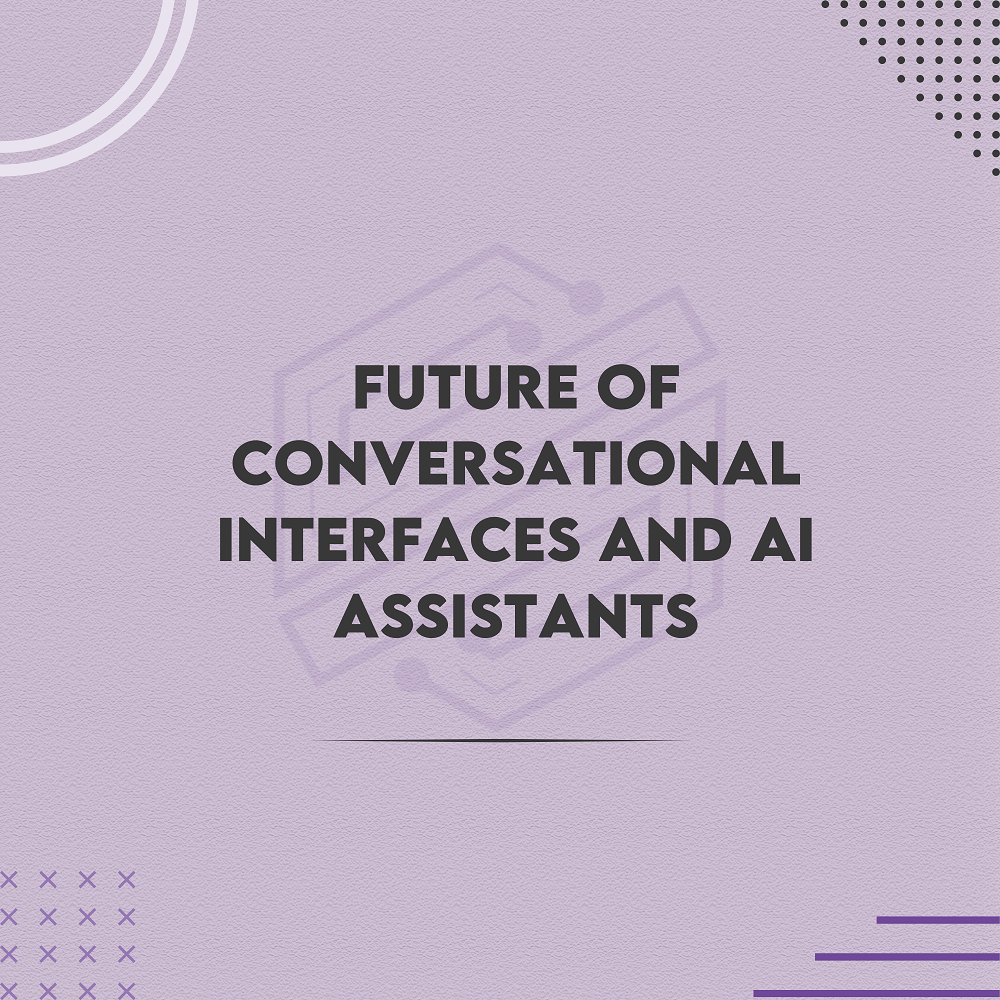Conversational interfaces and AI assistants have a bright future ahead of them, with many applications possible. Here are some important things to think about:
Enhanced Personalization:
AI assistants will provide individualized suggestions by examining user behavior, preferences, and previous exchanges. An AI assistant for music streaming, for instance, may recommend tracks based on the user’s listening preferences and emotional state. Future conversational interfaces will be able to respond more naturally and pertinently because they will comprehend context better. This means that AI assistants can provide more accurate information or assistance based on the ongoing conversation.
AI assistants will grow over time by adjusting to personal preferences and continually learning from user interactions. The assistant will grow more effective and tailored to the demands of the user thanks to this adaptive learning process. More customization will result in a more tailored user experience, with interfaces that adjust to the individual needs and tastes of every user. This might involve communication styles, content recommendations, and customized settings.
Conversational interfaces and AI assistants can boost user pleasure and engagement by providing tailored experiences. When assistants are aware of and responsive to their specific requirements, users are more inclined to engage with them regularly and in a constructive manner.
Integration with IoT devices:
AI assistants may be linked to Internet of Things (IoT) devices in homes, giving users voice commands or programmed routines to manage lighting, thermostats, security systems, and more. For instance, users may instruct the assistant to “turn off the lights,” and it would do so via speaking with smart lightbulbs. Integration with IoT devices enables task automation based on user preferences and routines. AI assistants are able to recognize user patterns and modify linked gadgets appropriately. One such practice may be to set it up so that as soon as the user wakes up, the coffee machine and thermostat are turned on.
By connecting AI assistants to IoT devices, users can streamline processes and manage multiple tasks simultaneously. For instance, scheduling appointments on a calendar via voice command while the assistant adjusts the room temperature or locks the doors. IoT integration allows for greater accessibility for users with mobility or accessibility challenges. Voice-controlled IoT devices, assisted by AI assistants, can help individuals operate various aspects of their environment independently.
AI assistants that are integrated with Internet of Things devices promote a more interconnected environment in which gadgets may easily interact and cooperate. This network of connections improves the user experience overall and makes daily chores easier.
Improved Natural Language Processing (NLP):
Future developments in NLP will enable AI assistants to better grasp the nuances of human language, including slang, context, and emotions. This improved understanding will lead to more accurate responses and interactions. Advanced NLP capabilities will allow AI assistants to engage in more complex conversations with users. They will be able to handle multi-turn dialogues, understand follow-up questions, and maintain context over extended interactions.
AI assistants will be able to tailor interactions depending on user preferences and conversational styles, thanks to improved NLP. Through the creation of customized experiences, customization may increase customer pleasure and engagement. Improved natural language processing (NLP) can enable AI assistants to translate words in real time, removing linguistic barriers and promoting communication among multilingual people. This functionality can be very helpful in multicultural or international contexts.
Conclusion:
Generally speaking, conversational interfaces and artificial intelligence (AI) assistants have a brilliant future in front of them that will work on numerous features of our regular day-to-day existences and meaningfully impact the manner in which we draw in with innovation. These improvements are the consequence of continued research, innovation leaps forward, and the developing mix of simulated intelligence into a great many applications.





